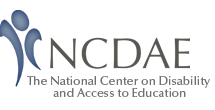I am often asked by people if their institution has a legal obligation to provide web content that is accessible to individuals with disabilities. The short answer to this question is yes, but sometimes there is confusion regarding which laws apply to a specific institution. This post provides a quick glance at the three most significant laws regarding web accessibility in higher education–Section 508, The Americans with Disabilities Act (ADA), and Section 504.
The information provided here should not be inferred to be legal advice. Anyone questioning legal obligations for their organization should consult with an attorney.
Section 504
Section 504 of the Rehabilitation Act of 1973 is the first civil rights legislation in the United States designed to protect individuals with disabilities. It is often the last of these three laws to be mentioned, which is unfortunate because it is probably the most unambiguous of the three. It clearly states:
“No otherwise qualified individual with a disability in the United States… shall, solely by reason of her or his disability, be excluded from participation in, be denied the benefits of, or be subjected to discrimination under any program or activity receiving Federal financial assistance.”
In other words, if you receive federal funds, you cannot discriminate based on a disability.
Americans with Disabilities Act
The Americans with Disabilities Act of 1990 is a sweeping piece of civil rights legislation that prohibits discrimination based on disability within employment (Title I), state and local governments (Title II), and public and commercial facilities (Title III). Because it became law in 1990, when the web was in its infancy, it does not actually mention the internet at all, but there are still ways that the ADA applies. Title II applies to state and local government, including public institutions of higher ed. It clearly states that communications with persons with disabilities must be “as effective as communications with others.” This is commonly interpreted to include web content. The Office of Civil Rights has defined effectiveness to include 3 components (OCR 09-97-2002.RES): (a) the timeliness of delivery, (b) the accuracy of the translation, and (c) provision in a manner and medium appropriate to the significance of the message and the abilities of the individual with the disability. You can see how providing an after-the-fact accommodation of the accessibility of a few limited pages of course materials could violate this provision.
Title III, however, is a bit foggier. There have been many lawsuits to determine how the web is included in ADA and the outcomes have been mixed. The Department of Justice (DOJ) is currently working to clarify this. In 2010, they published an Advanced Notice of Proposed Rulemaking (ANPRM) to revise Title III of the ADA to include websites. Under the section regarding the “Legal foundation for Web accessibility,” an entire paragraph is devoted to the internet and education:
“Beyond goods and services, information available on the Internet has become a gateway to education. Schools at all levels are increasingly offering programs and classroom instruction through websites. Many colleges and universities offer degree programs online; some universities exist exclusively on the Internet. Even if they do not offer degree programs online, most colleges and universities today rely on websites and other Internet-related technologies in the application process for prospective students, for housing eligibility and on-campus living assignments, course registration, assignments and discussion groups, and for a wide variety of administrative and logistical functions in which students and staff must participate.”
The DOJ has not provided any update on this ANPRM, but indicted that they will do so in 2013.
Section 508
Section 508 of the Rehabilitation Act, as amended in 1998, is US law that applies to Electronic and Information Technologies within the US Federal Government. While the scope of Section 508 is only within the US federal government, it may still impact your institution for several reasons:
- It is currently the only place in US law that defines what constitutes web accessibility, so its standards may be used to determine accessibility by vendors who desire to conform to this provision and also in legal actions. This is not an endorsement of Section 508 and careful consideration should be made when choosing a technical standard for your institution.
- Some states (e.g., Arizona, Nebraska, Oklahoma, Wisconsin) have adopted Section 508, or a derivative, as state law, applying to state agencies. In some states, Higher Education is part of the state agency constellation.
- Many grants and other sources of federal funding require that materials created within the funding meet 508 standards (§1194.22 for web content).
Let’s Recap
- Section 504
- Yes, because basically all institutions of higher ed receive federal funds.
- ADA
- For public institutions, yes.
- For private institutions, currently being clarified.
- Section 508
- Section 508 as a law applies to Federal Government.
- Many grants and contracts with the government require that materials that are created meet Section 508 standards.
So is it really the law?
In 2010, the following statement was issued by the Department of Justice:
“There is no doubt that the Internet sites of state and local government entities are covered by Title II of the ADA. Similarly, there is no doubt that the websites of recipients of federal financial assistance are covered by Section 504 of the Rehabilitation Act. The Department of Justice has affirmed the application of these statutes to Internet sites…in numerous agreements with state and local governments and recipients of federal financial assistance.”
This statement leaves little room for interpretation. So my response to the question, “Does my institution have a legal obligation to provide web content that is accessible to individuals with disabilities?” is “Yes”. Both public and private institutions (that receive federal funds) have a legal obligation to create accessible web content.


Pingback: Podcast #96: WordPress, Events | Web Axe
Pingback: Private Colleges and the application of Section 508 | IT Accessibility 4 All